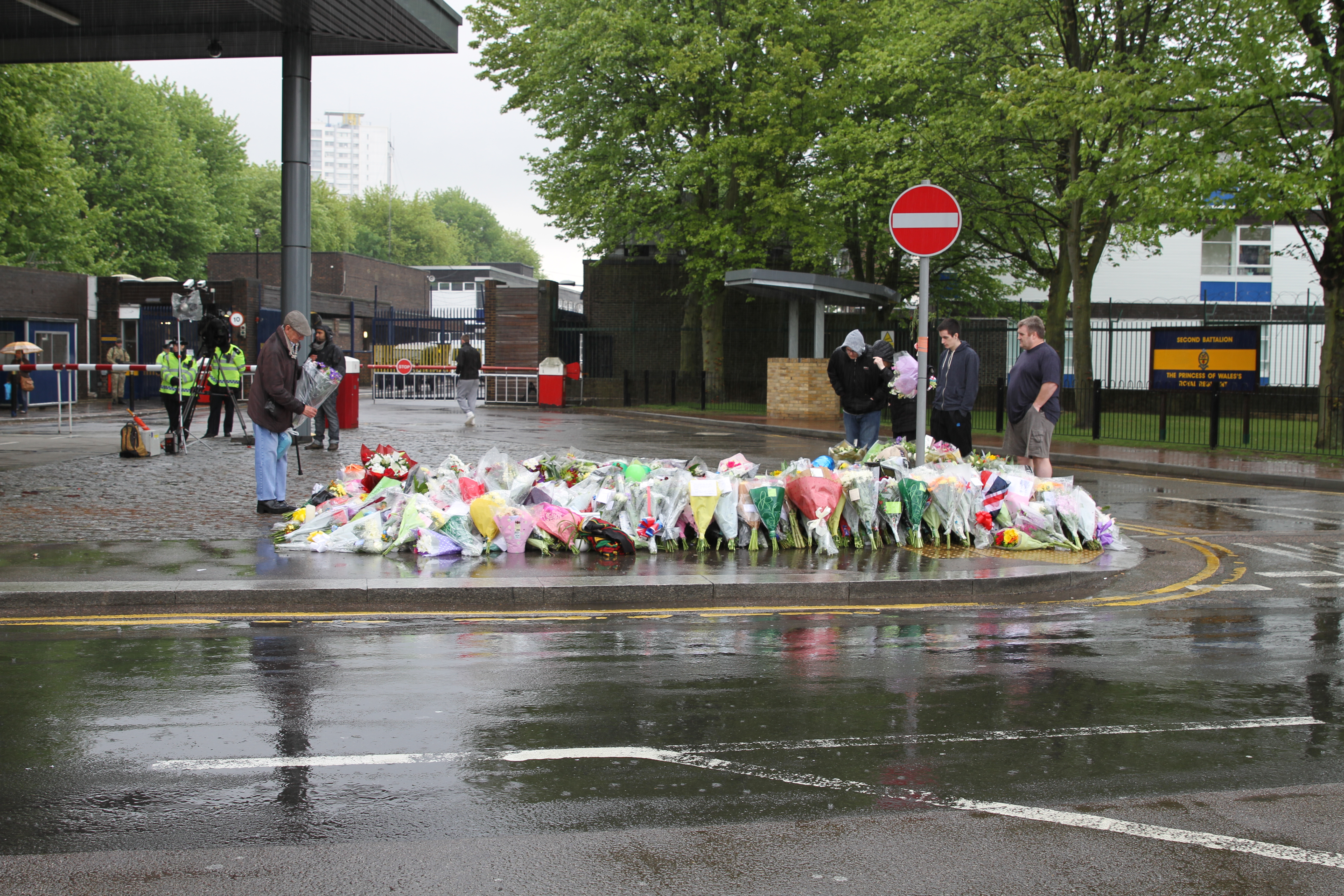Social media and tragedy
On Wednesday 22nd May, in what is believed to be an Islamist, terrorist attack carried out by two men wielding machetes a young soldier, Drummer Lee Rigby, 25, was murdered. Video footage of one of the men vaunting a series of political statements whilst holding the weapon with blood on his hands is now viral. And so cyberspace reacts.
I logged onto Facebook, expecting, well I wasn’t too sure what I was expecting but what I saw was encouraging to say the least. Instead of a tirade of tokenism and racist abuse numerous people were vilifying the racism that they had seen on their Facebook and other media outlets. The startlingly reactive nature of social media can often result in unethical generalisations such as racism getting a platform to rear its ugly head. You only have to look at last month’s Boston Bombings when a terrorist attack was automatically linked to Islam, and ‘Muslims’ started trending on Twitter, to see the ramifications of opinions going viral.
However, in regards to this latest tragedy which was enacted by two very clearly disturbed individuals, I saw with uneasy eyes how the initial reactions on Facebook can spread into a contorted and confused debacle of its very own. So as I say, early in the evening, my Facebook had people’s initial reactions which varied from the sympathetic to the angered at the emergence of closet racists on their own social networks. Later on after the initial hubbub had settled down, a new angle was then taken up by those yet to voice their shock and opinions on the incidents. Someone mentioned that they were astonished that while a British solider had been killed; people were instead focusing on the ‘racist’ reactions to it. The individual then said it was better to donate toward military charities instead of chattering away on the net.
I take the point about charitable donations certainly being a more active way of support and sympathy. Nevertheless, I feel that the suggestion that people are focusing on ignorance as a whole rather than expressing care for the individual itself is exceptionally flawed. Just because a person voices their anger at the racist attitudes of others following incidents such as this, does not mean that they do not ‘care’. To assume that people don’t care about an individual’s loss of life is exactly that, an assumption.
Assumption is an exceptionally dangerous thing. To comment on wider political and cultural scenarios in the aftermath of tragedy is not at all void of purpose, in fact, one would say that the reason people are angry at some of societies attitudes is because they are moved to empathy for the situation itself. You only have to witness the violent reaction of the EDL (English Defence League), which later followed the incident, to understand why people are angry at viciously narrow-minded generalisations anyway.
How far any opinion on social media is first mediated by other peoples can have a major effect on how someone articulates their own. The opinion storm escalates so quickly that people begin trying to throw new angles of perspectives that people ‘should’ be considering in wake of the tragedy. We are told that we should be focusing on say, the victim’s family, the victim himself, the unfair branding of ethnicity etc. While people keep trying to provide a ‘unique’ emotional perspective on the situation, the situation itself becomes confused. Just because one person has voiced their opinions on one aspect of the event does not mean they haven’t considered the others. Our capacity for empathy is much more versatile than it is sometimes assumed to be.
Why do we like to provide the ‘more morale’ way of looking at an issue? There is a very uneasy sense of trying to out-do someone’s status or perspective on social media. The whole psychology of the Facebook ‘like’ system is a very contentious one indeed. Who doesn’t note how many likes they get on a status or a picture they have posted sometimes? I have, I’m more than a little ashamed to admit. So I can’t help but be sceptical of the genuineness of some people’s opinions and motivations for writing charged statuses following antagonistic or tragic circumstances. I want to make it clear that I am not saying such people aren’t empathetic I am quite sure they are but the motive is something of a troubling one indeed.
Oh and look at that, #Muslims is indeed trending again. Which to be honest is made all the more poignant since as of Saturday 25th May, arrests have been made over racist responses on social media toward the attack. Sigh.


Comments